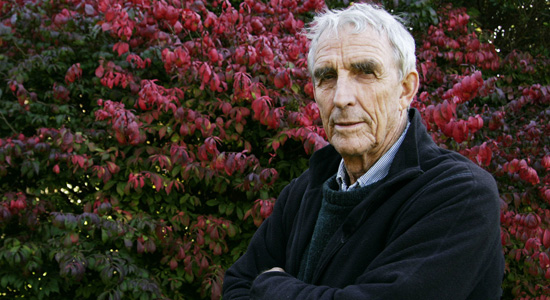Shearwater’s Jet Plane And Oxbow is an album that looks backward—to the recording technologies and sounds of the early ’80s—in order to interrogate the present and to contemplate the future. Shearwater’s moody, thoughtful style, built around Jonathan Meiburg’s dramatic, beautiful voice, turned toward rock with 2012’s Animal Joy, which now sounds like a stopover in the flight path toward Jet Plane. Meiburg used period-specific instruments; his guitar playing alludes to Adrian Belew’s work with David Bowie and Robert Fripp’s with Peter Gabriel; he integrates the stark sounds of Joy Division and early New Order. But the goal wasn’t nostalgia. Jet Plane doesn’t sound retro, nor does it sound like an homage. The allusions are there to create a sonic parallel to our time. Meiburg will be guest editing magnetmagazine.com all week. Read our new Shearwater feature.

Meiburg: A novel that reads almost like a screenplay, this spare—and I mean spare—novel will knock you on your heels if you can hang in and get used to its unusual voice, or voices. The author went to the Cayman islands for a year in the mid-1960s (a sleepy, provincial place then) to find the crew of a wooden fishing boat he’d heard was still operating under sail, catching sea turtles among reefs off the coast of eastern Honduras. He found the boat, paid its captain to take him out, and wrote a piece about it for the New Yorker (“To the Miskito Bank”), but he told the magazine’s editor (Wally Shawn’s legendary dad, William) that he was saving the best stuff back for a novel.
And what a novel. Matthiessen was always experimenting with form, but this was as far out as he ever went: Every once in a while, Far Tortuga doles out a few crumbs of scenery, but the book consists almost entirely of dialogue, rendered convincingly in Caribbean English, as the crew of the boat embarks on a last desperate fishing trip and meets with one disaster after another. He later said he wanted to “take all the furniture of a novel out of it,” and man, did he ever; many pages are mostly empty space. Some people were baffled by Far Tortuga when it came out (Thomas Pynchon loved it), but it remained Matthiessen’s favorite book, even above big hit The Snow Leopard, which he wrote next. He once said he could have gone on writing it forever, and I think this is actually true; I once saw a copy that belonged to him, and he was still crossing out lines of dialogue and adding new ones after the book was in print.
Video after the jump.






